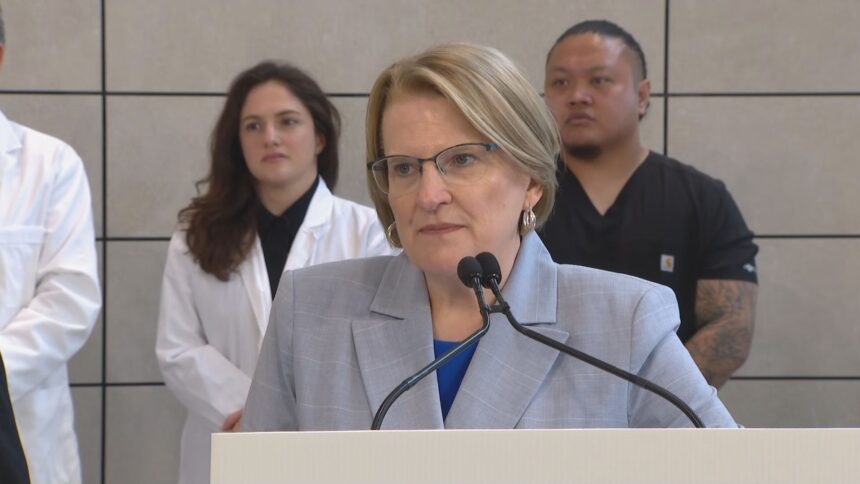As I watch the unfolding situation with Ontario Health atHome’s data breach investigation, I can’t help but think about how quickly digital healthcare has become integral to our lives here in Toronto. Just last week, I was interviewing a local tech security specialist who warned that healthcare data systems represent some of our most valuable—and vulnerable—digital assets.
Ontario Health atHome, the province’s home and community care program, confirmed yesterday they’re investigating a potential security breach linked to one of their technology vendors. Health Minister Sylvia Jones addressed reporters at Queen’s Park, emphasizing that protecting patient information remains the top priority while the investigation continues.
“We take the privacy and security of Ontarians’ health information extremely seriously,” Jones stated during the press conference. “The ministry and Ontario Health are working together to determine the extent of any potential data exposure.”
According to officials at Ontario Health, the breach was detected during routine security monitoring when unusual access patterns triggered automatic alerts. The affected vendor, which provides scheduling software for home care visits, has been temporarily disconnected from the broader Ontario Health network while forensic IT specialists assess the situation.
For Toronto residents receiving home care services, this raises important questions about data security. Emily Krishnan, a cybersecurity expert at Toronto Metropolitan University, explains why healthcare data is particularly valuable to hackers.
“Health records contain everything from personal identifiers to financial information,” Krishnan told me during our conversation this morning. “Unlike credit card information, which can be changed if compromised, your health history is permanent. That’s why these records fetch premium prices on illicit markets.”
The Ministry of Health has established a dedicated response team and hotline for patients concerned about their information. While officials haven’t confirmed how many individuals might be affected, sources familiar with the system estimate that Ontario Health atHome serves approximately 700,000 patients provincially, with nearly 200,000 in the Greater Toronto Area alone.
I spoke with Martin Chen, Executive Director of the Toronto Digital Health Coalition, who emphasized the delicate balance between innovation and security.
“We’ve seen tremendous advances in home healthcare technology, especially since the pandemic accelerated digital adoption,” Chen said. “But this incident highlights why security can’t be an afterthought. It must be built into every level of healthcare technology.”
For now, Ontario Health assures the public that home care services will continue without interruption while the investigation proceeds. The organization has implemented additional monitoring protocols and is conducting a comprehensive review of all vendor security practices.
Walking through my Leslieville neighborhood this morning, I noticed several elderly residents receiving their regular home care visits. These services represent a lifeline for many Torontonians, particularly our aging population who depend on consistent, reliable care to remain in their homes.
Toronto senior advocate Patricia Moreno expressed concerns about how the breach might affect vulnerable populations. “Many older adults already struggle with technology. Security breaches can erode trust in digital healthcare systems that many have only reluctantly embraced,” Moreno explained during our phone conversation.
The Ontario Information and Privacy Commissioner’s office confirmed they’ve been notified of the incident and will oversee aspects of the investigation. Under provincial privacy legislation, healthcare custodians must report breaches that risk significant harm to affected individuals.
For Toronto residents wondering about their own data security, Krishnan recommends several proactive steps: “Monitor your accounts closely, be wary of unexpected communications claiming to be from healthcare providers, and consider placing fraud alerts with credit bureaus if you believe your information may have been compromised.”
As this story develops, I’ll continue to follow the investigation and what it means for Torontonians receiving home care services. In an increasingly digital healthcare environment, this incident serves as an important reminder that protecting patient data requires constant vigilance.
For those concerned about potential exposure of their information, Ontario Health has established a dedicated helpline at 1-800-445-1822 where patients can receive updates and guidance specific to their situation.







